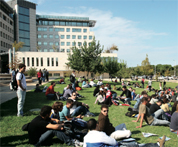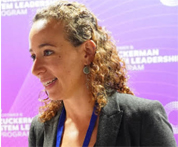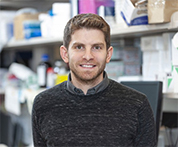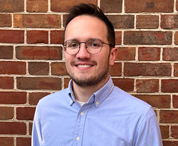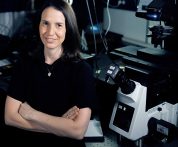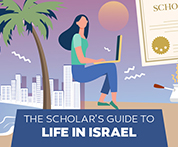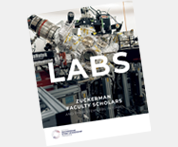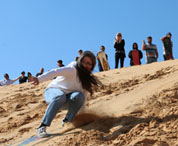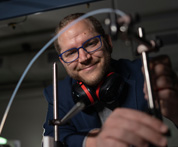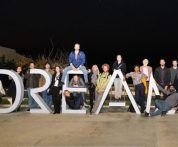How does Israel maintain its lead in the world of scientific research and discovery? It takes the right vision, the right leadership, and a tremendous dedication to a particular field. For Zuckerman Faculty Scholars, it means a desire to conduct their research in Israel, to come home and contribute to Israel’s “Brain Gain.” It means joining the faculty of an Israeli university and building a customized, state of the art lab where they can conduct cutting-edge research in their chosen field.
While these traits are common to all Zuckerman Faculty Scholars, two individuals share something more: Dr. Yaara Oren, Faculty Scholar at Tel Aviv University, and Dr. Lior Lobel, Faculty Scholar at Bar-Ilan University, and are a married power couple who met as undergraduate students at Tel Aviv University, pursued post docs in the United States, and returned to Israel to build a future.
With the decision to come back to Israel, both Yaara and Lior applied for and were accepted into the Zuckerman Faculty Scholars Program and secured their respective faculty positions. They have since built and opened their own labs, where they conduct cutting-edge research to try and solve medical mysteries and find real solutions for diseases that affect millions of people.
In The Oren Lab – Cancer Persister Cells, Yaara and her team study persister cells to understand “why we haven’t cured cancer yet.” She explains that there are cells that should die, yet they persist – without demonstrating any changes or mutation to their genetic code – and clearly survive, likely driving a relapse.

“We are looking at alternative methods, such as epigenetics and post-translational modifications, rather than a mutation, focusing on non-genetic traits that can be inherited from mother to daughter cell, to tackle a question which has far-reaching clinical implications. In fact, these cells are one of the biggest problems since most patients die of relapse, not from their original disease.” The study of persister cells is a new field. There are currently a handful of labs in the world dedicated to going against the mainstream and studying these rare cells.

For Yaara, returning to Israel after her postdoc was never a question. “Science is part of who I am. I was raised in a family of scientists and told that science in Israel is a form of Zionism. It was always clear that no matter where we go, we always return, investing in and building science in Israel.” She is proud of being an Israeli scientist, especially now during the war, and she has the respect of colleagues overseas.
For Israel scientists looking to come back, family considerations may affect their decision, but personal considerations aside, Yaara recommends looking for a community of peers as a first step. “I looked for peers who could help me, and who I felt comfortable talking to.” As far as finding the most suitable university for their research, she believes that all Israeli universities are first-tier. “Look for a place where you’ll have the best support, where you will have the ability to brainstorm with peers and get advice.” Especially since most Israelis tend to stay in the same place over the long term, “it’s important to consider that when committing to a tenure track, your community for the next 30 years is important.”
Yaara adds that returning to Israel is a journey which involves a reset. “Before, you were on top of the world, and suddenly you’re back at the bottom of the ladder. Learn to ask for help. Don’t be embarrassed to say, ‘I don’t know how to do that.’ Even the most successful people start out that way!
“Being a Zuckerman Faculty Scholar extends way beyond funding,” she explains. “What makes a real difference is peer support, which is extremely important. Having meetings and gatherings is so important. Thanks to the program I have gotten to know scientists I may not have met on my own. I am grateful for those opportunities that allow us to get to know our peers better. For example, I met Dekel Rosenfeld through the program and we continue to meet and support one another.”


In Lior Lobel’s Diet-Microbiome-Cancer Lab, the phrase “You are what you (and your microbiome) eat,” guides their study of gut bacteria, specifically the pathogen listeria. While it causes a flu-like disease in healthy people, it can lead to meningitis in the immunocompromised and to miscarriage in pregnant women. As a PhD, Lior discovered the transcriptional factor in listeria that senses a metabolic cue and mediates it to expression in the host. As a postdoc, he focused on the diet-bacteria-host connection. This led to finding that a dietary component affects sulfide levels in the gut which can inhibit or alter dietary bacterial enzyme causing kidney issues and can affect tumors in colon cancer.
Lior’s team found that if diet or bacteria are altered in mice, it can affect the progression of the disease. Their study – a new discovery in the field – was published in Science. He is currently pursuing two avenues of cancer research at Sheba-Tel HaShomer Medical Center to understand how diet affects bacterial activity in the gut and how the microbiome affects cancer. The first is a study of prostate cancer patients to discover new biomarkers for predicting prostate cancer since the current model, such as the PSA test, gives many false positives. The second involves studying melanoma immunotherapy checkpoint inhibitors, antibodies that target receptors in immune cells, such as T cells, that keep working to kill tumors.
Lior says there are three main factors for postdocs to consider when choosing where to go. “First, find the most appropriate university for your research and make sure there’s a good connection. Of course, you should have a real passion for a particular subject, one you really want to study. Second, you should have a good connection with a mentor, advisor or a research group. And finally, go on a road show: tour labs interested in hosting you and take all interviews. It is very important to find a lab you’re comfortable with.”
He described the next part of the journey – from being accepted as a Zuckerman Scholar to building his own lab – as similar to being accepted to a faculty position in Israel. “Being nominated for the Zuckerman Award is important and it helps, but the university doesn’t require that you have it. I was fortunate in that Bar-Ilan readies labs for their researchers fairly quickly. I was then able to customize it and within eight months we were set up and well-equipped. I am grateful that the Zuckerman funding I received helped this happen so quickly.”
“We are part of an amazing community,” Yaara explains. “The academic freedom we have in Israel is wonderful. We can study any question which we are passionate about. We are very fortunate to be in a place that gives us a lot of support to achieve our goals.”
 ISRAELI COUNCIL FOR HIGHER EDUCATION
ISRAELI COUNCIL FOR HIGHER EDUCATION MIT-Israel Zuckerman STEM Fund for Faculty Collaboration
MIT-Israel Zuckerman STEM Fund for Faculty Collaboration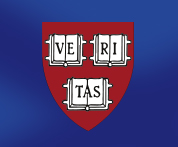 The Zuckerman Travel and Research STEM Fund at Harvard
The Zuckerman Travel and Research STEM Fund at Harvard Zuckerman AI Fund at Technion
Zuckerman AI Fund at Technion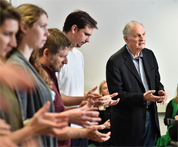 Alan Alda Communicating Science
Alan Alda Communicating Science Zuckerman Institute – ScienceAbroad
Zuckerman Institute – ScienceAbroad Zuckerman Institute – America-Israel Friendship League partnership
Zuckerman Institute – America-Israel Friendship League partnership



